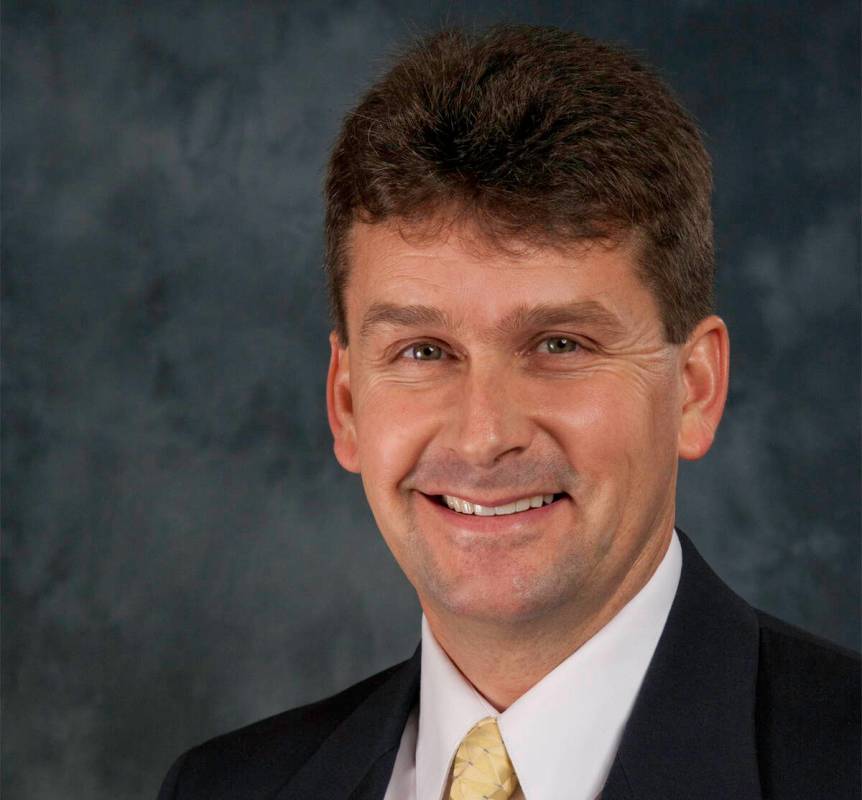
Our newest City Council members, Sherri Jorgensen and Matt Fox, took office only six months ago. So, it might seem much too early to start talking about city elections again. But this year marks a major change in Boulder City’s election cycle: a shift from odd-year elections to even-year elections. In other words, past city elections were held in odd-numbered years (for example, 2017, 2019 and 2021), but beginning this year they’ll take place in even years (2022, 2024 and so on).
Why the shift? Primarily for two reasons. First, voter turnout has traditionally been much higher in even-numbered years. That’s especially true in presidential election years but also true in midterm state and federal election years.
The fact is, citizens are much more likely to vote when national and state races are on the ballot. And with rare exceptions, those elections occur in even-numbered years. So, even though Boulder City’s voter turnout is almost always exceptionally high, the shift to even-year elections is designed to increase our voter turnout even further.
Second, a few years ago, Clark County threatened to stop footing the bill for our odd-year elections. So, Boulder City, along with many other local governments, agreed to shift to even-year elections as a cost-saving measure. Other factors, both pro and con, played a part in the decision. But regardless, it appears we can expect even-year elections to be the norm going forward, at least for the foreseeable future.
The shift to even-year elections has many other implications, some of which might be readily apparent, but others not so apparent. One not-so-apparent implication is that, in order to effectuate the shift, the term of office of each council member elected in 2019 and 2021 will be shortened by seven months. So, unless re-elected this year, Mayor Kiernan McManus and council members Claudia Bridges and James Adams will each only have served a three-year-and-five-month term instead of the traditional four years. The same will be true of Jorgensen and Fox when their term ends in 2024. But that minor adjustment is short-lived, since the victors later this year and thereafter will be elected to four-year terms once again.
Another result of the shift that I’m definitely not thrilled about is longer political campaigns. Under the old odd-year system, candidate filing took place at the end of January, the primary election in early April, and the general election in mid-June. Under the new system, however, candidate filing occurs in early March, the primary in mid-June, and the general in early November.
So, instead of campaigns lasting as little as two months and no more than four-and-a-half months, they’ll now linger on for three-and-a-half to eight months.
I don’t know about you, but it doesn’t take me near that much time to size up a candidate’s credentials and character. And, good grief, there’s only a limited supply of dead horses to beat! But I suppose it’s not the end of the world. We’ll survive and hopefully be better off in terms of voter participation.
Whether candidate participation will also increase, however, remains to be seen. Modern trends toward greater hostility, bashing, personal attacks and browbeating in our public forums are already causing would-be candidates to shy away from the prospect. And making them endure longer campaigns may only serve to increase their reluctance.
Furthermore, those willing souls who win quickly find out that their toughest days are still ahead of them. Public service is hard work and requires thick skin. Regardless of our political leanings, those who run for office deserve our admiration and thanks.
So far, McManus, Bridges, and Adams have yet to announce whether they will seek re-election. I’ve reached out to all of them and hope to hear from each very soon. Sen. Joe Hardy gave us an early Christmas present when he recently announced his intention to run for Mayor McManus’ seat.
“Doc” Hardy, as he’s affectionately known, will present an imposing challenge to any contender. He’s a man of many talents who comfortably wears many hats, including vast experience in the military, education, medicine, ecclesiastical and humanitarian service, business, family life, charities, nonprofits, ambassadorships, regional boards and other management and leadership positions. But thus far, he’s the only challenger to announce.
Candidate filing begins March 7 and runs through March 17. Early voting for the June 14 primary extends from May 28 to June 10. If you’re not already registered to vote, make sure you register soon. Then join me at the polls to set the future course for our city. This election promises to be a historic one that none of us will want to miss.
The opinions expressed above belong solely to the author and do not represent the views of the Boulder City Review. They have been edited solely for grammar, spelling and style, and have not been checked for accuracy of the viewpoints.
Rod Woodbury has resided in Boulder City for more than 40 years and is the president and managing shareholder of his law firm, Woodbury Law. He served on the City Council from 2011- 2019, including four years as mayor.